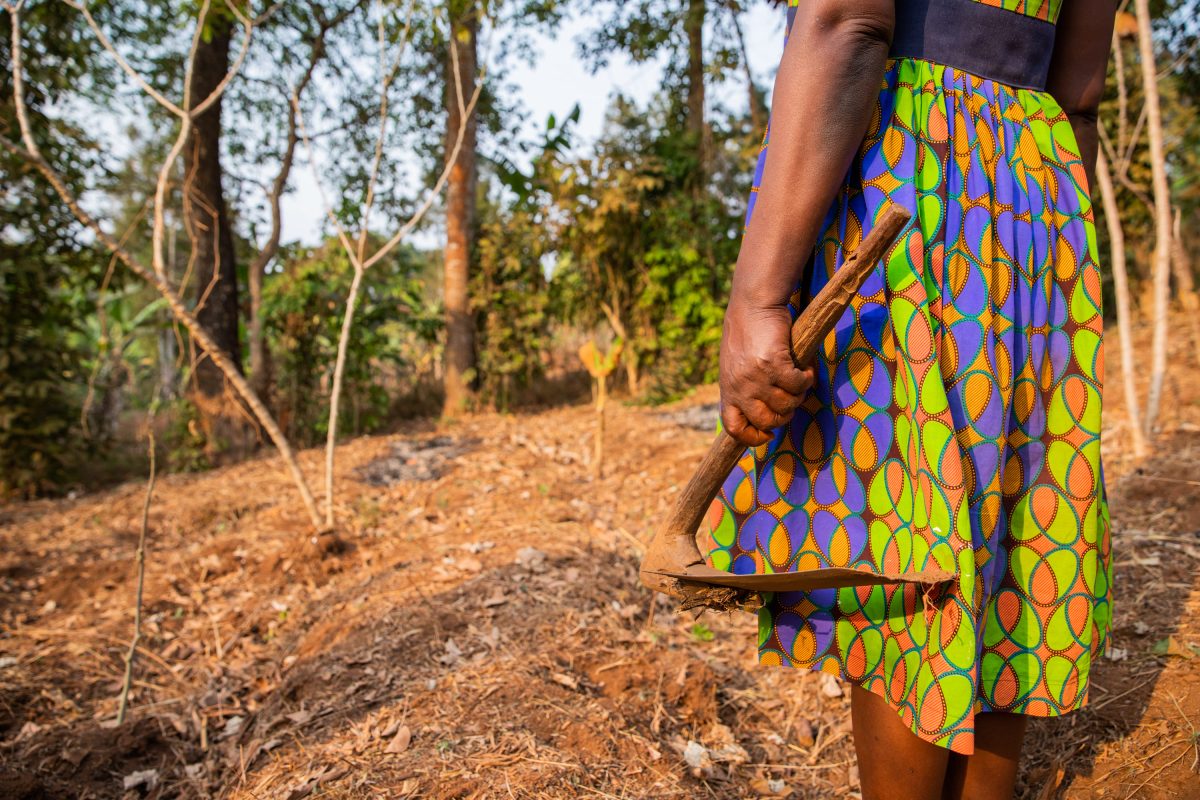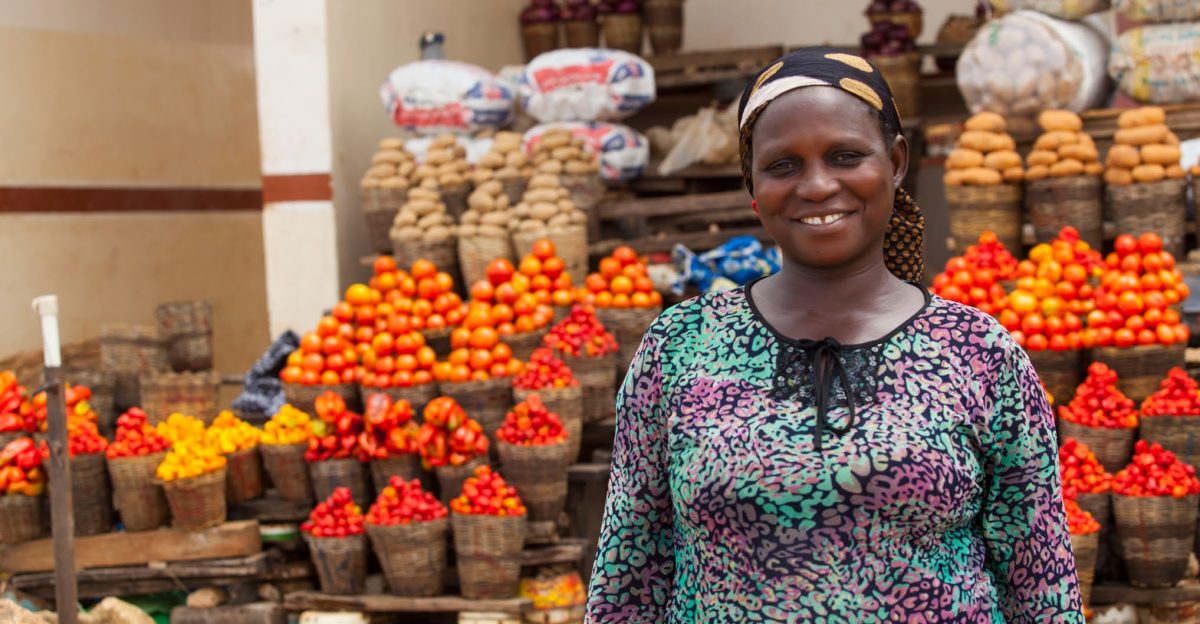Window 2—Investment in Women’s Cooperatives and Associations is a component of the Investing in Women’s Entrepreneurship for a Greener Economy in Benin and Burkina Faso (IIW B&BF) program, a CAD$16 million program funded by Global Affairs Canada (GAC). This component of the fund includes non-repayable grants to cooperatives working with women in Benin and/or Burkina Faso, totaling C$1.5 million.
Implemented by AECF, the programme aims to empower women and young women by encouraging their participation in traditional and non-traditional sectors.
The programme aims to:
- Strengthen the private sector’s commitment to women as economic actors
- Increase private and public sector investment in locally owned and led small and medium-sized enterprises (SMEs) by women and other types of local businesses that create economic opportunities for women
- Reduce systemic gender inequalities, which hinder women’s effective economic participation in markets with high ecological impacts and in the private sector in general
-
Fund Objectives
- Improve access to finance for cooperatives and women-led associations that create economic opportunities for women, for example, by promoting job creation, strengthening economic fabrics, and supporting suppliers of inputs, products, and services along value chains where women are involved
- Provide targeted technical assistance for the business development of local women-owned and led cooperatives and build the capacity of cooperatives in gender mainstreaming
-
Promote and raise awareness about the economic, social, and environmental benefits of investing in women in Benin and Burkina Faso
-
Provide incentives to foster the sustainable and widespread adoption of climate-smart practices
-
Areas of intervention
Our funding is available to cooperatives, associations and other women’s organizations working with commercially active women and women’s groups in Benin and/or Burkina Faso with proven links to women entrepreneurs and/or women-owned businesses
While there are no mandatory value chains, the financing targets value chains where women predominate or provide investment opportunities to enable women to break into value chains where they have traditionally been excluded due to social and cultural norms.
The main value chains targeted include (but are not limited to) shea, rice, groundnuts, soybeans, poultry, etc.
-
Eligibility
To be eligible for funding, co-operatives must meet the following criteria:
- Be a duly registered cooperative, association, organization, or women’s group that is aligned with the targeted areas of intervention
- Demonstrate 100% female management and a dominant representation of women employees, women entrepreneurs, women agro-industrialists, and/or service providers
- Be able to demonstrate a commitment to match the AECF contribution based on the ratios set out in the matching contributions (as outlined in Section 7 below)
- Propose an investment that supports gender transformation and improves resilience to climate shocks
- Apply for a grant within the stipulated range
- Comply with the country’s fundamental laws and regulations, including tax and social compliance laws
- Comply with international human rights, labor standards, and environmental management laws
- Demonstrate commitment to gender equality and the empowerment of women and young women in the conduct of the organization and its activities
- Be legally registered and physically established in Benin or Burkina Faso and have carried out its activities for at least two (2) full accounting years at the time of application
- MUST NOT be involved in an act of bribery. AECF requires that the applicant (including its personnel, contractors, and suppliers) shall not be involved in the offering to third parties, nor in the seeking, acceptance, or promise by third parties, for itself or any other party, of any gift, remuneration, compensation or benefit of any kind, which could be construed as an illegal or corrupt practice
- MUST NOT be associated with activities prohibited by the Government of Benin or Burkina Faso: terrorism, money laundering, or a list prohibiting trade with certain companies (IFC (International Finance Corporation), USAID, UN, EU (European Union), and any other network), in accordance with United Nations Security Council resolutions issued under Chapter VII of the Charter of the United Nations. All applicants and associated parties will be screened against provisions such as https://sanctionssearch.ofac.treas.gov/, https://www.worldbank.org/debarr, World-Check, EU Sanctions List, etc.
- Enable due diligence for eligibility verification (due diligence, social documents, accounting documents) and regular checks (by quarterly visits and/or unannounced site visits)
- Demonstrate added value; see details below
-
Sectors of activity
Eligible cooperatives must demonstrate that their services are accessible and affordable, that they directly benefit women and young women, and that they encourage the adoption of climate- and gender-appropriate technologies, products or services.
To be eligible, proposed initiatives can cover any part of the value chain, but must demonstrate an ambition to address systemic challenges that prevent women from engaging more effectively in the private sector. Examples of co-operative models that will be targeted include (but are not limited to):
- Cooperatives or associations that provide services to women and young women, such as training, technical assistance, equipment rental, and access to finance
- Market aggregators that provide women with new and reliable opportunities to increase their profits and incomes
- Processing and/or manufacturing cooperatives that originate from women and/or create economic opportunities for women through job creation
- Advisory groups that advise women on human rights and their obligations, including addressing violence against women and supporting women who challenge social and cultural norms that limit women’s access to the private sector
- Groups that raise household awareness of innovative environmental and climate-friendly solutions and technologies, and integrate them into production, transport and processing in value chains.
-
Funds available
Applicants must submit a funding application justifying their needs for their organization and/or the idea to be funded, the amount of funding and the duration of the project.
Provided in the form of grants, the funding must be used for a specific project, e.g. the introduction of new services or products, the expansion of an existing business or the replication/expansion into a new market. Beneficiary cooperatives can apply for different types of financing depending on their stage of development:
- Minimum funding of $75,000 CAD
- Maximum fund amount $300,000 CAD
The AECF intends to fund up to 10 co-operatives or associations for an average amount of $150,000 CAD each.
Funding will be in the form of non-repayable grants and will be provided in Canadian dollars. Funding is contingent on the fulfilment of matching criteria (see Section 7 on matching contributions). Co-operatives must apply for funding based on their stage of development and their ability to absorb the financing of the proposed project. The co-op’s absorptive capacity will be assessed during the application process and the funding provided may be less than that requested or take another form.
Funding payments will be made on a milestone basis, i.e., disbursements will be based on mutually agreed upon milestones that must be completed or delivered. The first disbursement will not exceed 30% of the total amount granted. Other disbursement conditions may be introduced by AECF on the basis of an individual request prior to the signing of the contract.
Duration of the financing agreement: up to 4 years
-
Matching Contribution
The AECF will ask the applicant to make a contribution associated with the funding provided, in order to demonstrate their interest and commitment.
- The funding provided must have a grant-to-participation ratio of at least 1:0.25 (100% grant/25% participation).
- All matching contributions can be in-kind and can also be made in cash.
Matching contributions can be made either entirely in cash or by combining “cash” and/or “in-kind” contributions, as shown in the document attached below.
-
Desired socio-economic impact
Cooperatives need to demonstrate how they produce and maintain social impact in their target markets. Specifically, it is the number of women they serve.
Co-operatives must highlight how they meet the following criteria:
- Include women and young women in the management of the organization.
- Practices for gender mainstreaming in their activities (e.g. women-centred design and gender-sensitive data collection).
- Demonstrable benefits for women in terms of increased time available for other activities, improved health, reduced chores, and increased household purchasing power.
- Projects must be environmentally friendly, with the promotion of climate-smart solutions particularly encouraged.
Progress towards the above objectives will be measured using (only applicable targets will be measured):
- Number of new jobs created by the organization (60% for women).
- The volume of products or services purchased from women entrepreneurs in Canadian or U.S. dollars.
- The volume of inputs and/or services sold to women entrepreneurs.
- Number of women sensitized or trained.
-
Selection criteria
Each candidate will be evaluated and scored based on the following criteria:
- Briefly describe a sustainable business model that will be created with the support of AECF staff. The proposal must be technically sound and align with the activities described in Section 3 (Focus Areas) above. It should specify how performance is measured and evaluated with all agreed indicators, targets and milestones.
- The co-op must demonstrate that it has achieved satisfactory results. Where available, testimonials on past performance should be presented.
- The proposal must include the CV(s) of key personnel with the required training and experience for the technical nature of the proposed project.
- The proposal should indicate the methods and degree of coordination with the local government and participating communities.
- Demonstrate sound financial health, including two years of audited financial accounts, established financial management processes and procedures.
- Demonstrate how the matching funds will be made available, including details of when the funds will be available.
- Demonstrate the capacity of the management team to implement the proposed project (adequate internal resources/capacities).
- In their proposals, cooperatives MUST describe their environmental impact and waste management policy and procedures and demonstrate alignment with global and national environmental management regulations.
- Applicants must provide an overview of potential waste in value and supply chains and explain how they intend to manage it. They must indicate the added value or gain of their proposal compared to traditional practice.
- Demonstrate how the gender analysis informed the creation of the cooperative or project proposal and how it will be impacted by the project.
- Identify the risks and threats to the implementation of the project and the methods that would be used to mitigate these risks.
-
Appreciation of added value
A project is considered value-added if it allows the beneficiary cooperative or organization to achieve something that would not have been achieved without the AECF grant, such as achieving its deployment or outcome objectives more quickly, undertaking larger investments allowing it to reach out to a wider audience, adopting a more inclusive approach by reaching women that it would not have been able to reach without the help of the project.
-
How to Apply
Two-step application process:
- Potential applicants will be invited to register for a training session provided by the AECF on the programme, which will provide information on how to apply, the minimum expected capacities and the conditions of financial assistance.
- As part of the training process, candidates will prepare, with the assistance of AECF advisors, a brief business plan that will be submitted for independent evaluation.
-
Disclaimer
The AECF does not ask for any sort of payment at any point in the application process.
Window 2: Term sheet for applicants

Programme Brief
